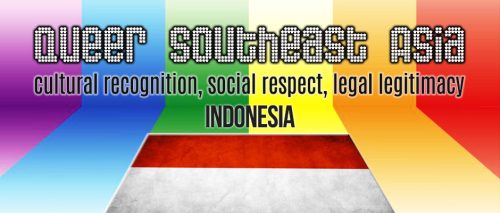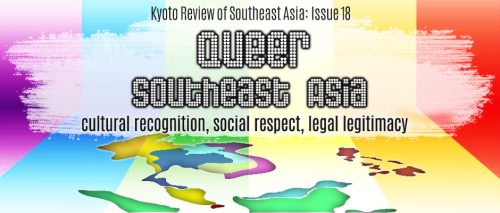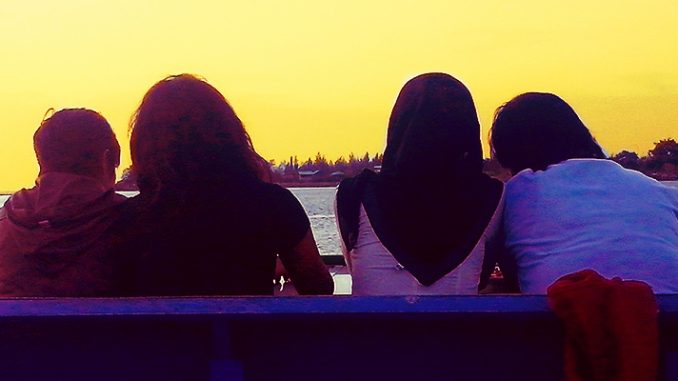
The Qanun Jinayat (Arabic for ’criminal code’) which was passed by the Aceh Province legislative council in late September 2014, among other things, states that those who are caught engaging in same-sex practices (i.e. liwath: anal sex between men; and musahaqqah: women “rubbing” their bodies against each other for sexual pleasure) are liable for a public caning of up to 100 lashes. Public caning, as cited by local officials, is aimed more at humiliating the persons involved than a form of corporal punishment. In 2009, then-Governor Irwandi Yusuf refused to sign an earlier version of the Aceh criminal code, which included stoning for adultery. This led the Aceh legislature to rewrite the criminal code over the following five years. The anti-homosexual bylaw is the latest installment under Aceh’s Sharia legal system, which was granted by the central government as part of a peace agreement in 2005 that ended 30 years of military campaigns in the region. While initially claimed to be an expression of ’values ’ and not strictly enforced, it has recently been imposed stringently, as evidenced by the formation of a moral police force (Wahdatul Hisbah) to conduct surveillance of Acehenese society and enforce stricter adherence to syariat.
On the other hand, MUI is an Islamic organisation whose legal opinion (Arabic: fatwa) is often referred to by the Indonesian state and wider society as an authoritative source of knowledge on Islamic law, theology, ethics, and morality. Both the executive and legislative bodies of the Indonesian government also consider the content of MUI fatwa as one of their sources for state legal drafting. While not legally binding, MUI edicts have often been used to justify violent action against religious and other minorities, such as violence against members of the Ahmadiyah religious movement in 2011. I view these two orthodox legal pronouncements as being symptomatic of resistance to citizenship advances in same-sex partnerships and antidiscrimination laws in the global West. There is not space here to explore this issue further.
It is important to note here that my view of Islamic orthodoxy departs from essentialist explanations of Islam as a single ontological category (Asad 1986), which in the context of queer 1 rights discourses in the West is often stigmatised as a site of oppression and the source of violent cultural practices (Dhawan 2013), and has also been used to represent the Islamic world as backward (Massad 2002). Following Talal Asad (1986), I view attention to Islamic orthodoxy as only one domain within the multifaceted understandings of this major faith (Schielke 2010), which is “not a mere body of opinion, but a distinctive relationship – a relationship of power. [Islamic orthodoxy is] [w]herever Muslims have the power to regulate, uphold, require, or adjust correct practices, and to condemn, exclude, undermine, or replace incorrect ones“ (Asad 1986: 15-16). I contend that this particular location of power and how it is formed into a normative order cannot be ignored in considering vernacular models of sexual exclusion and inequality in an interdependent world, not only in Indonesia but also in the broader Southeast Asian context.
The analysis in this article focuses on the legitimised Islamic view of homosexuality in Indonesia and how this shapes public feelings towards Muslim queers. As a part of my larger research project investigating the politics of affect and emotion of Muslim queers in Indonesia, I believe that a focus on the emotional dimensions of the dynamics of religion and homosexuality can help further the study of hegemonic discourses, a field traditionally dominated by accounts of formal legal articulations, practices and ideologies.
Normative Violence in Indonesia’s Contemporary History of Sexuality
Evelyn Blackwood (2007) has described the contemporary regulation of homosexuality in Indonesia as falling into three historical phases. Firstly, during the 1980s, the state under Soeharto’s New Order regime controlled sexuality through, “the creation of normalized, reproductive citizens“, the majority of whom “are faithful adherents of Islam“ (Blackwood 2007:294). Blackwood then identifies the 1990s as the decade when a combined discourse on sexuality orchestrated by both the state and Islamic officials shifted in response to international pressures to support sexual rights. Thirdly, the period since the demise of the Suharto regime in 1998, has been a time when a conservative Islamic agenda has been pushed, including more restrictive laws in the State Penal Code and direct attempts to legislate heterosexual marriage by expounding an explicit and restrictive list of legal acts, while remaining unclear about the legal status of same-sex acts between consenting adults. In this latest period, Blackwood also describes an intensifying public debate on the role of the State in defining normative orders, which has constituted a form of ’moral panic’ (2007: 303). In the face of volatile socioeconomic conditions, combined with challenges presented by political decentralisation and the emergence of a multi-party system based on competing ethno-local political agendas, the State has been prompted to initiate a reactionary legislative process on the ground of “morality“ in order to construct an image of stability in public life.
Post-Reformasi Indonesia has also seen advancing tides of religiously motivated hostility towards nonnormative sexualities and genders in everyday life. Patterns of violence, including physical assault, have increasingly targeted LGBTQ (Lesbian, Gay, Bisexual, Transgender/sexual, and Queer) social gatherings and public events (see Thajib, 2014). Tom Boellstorff (2004) describes this emerging pattern of violence as a form of ’political homophobia’ that is driven by the threat that nonnormative persons are perceived to present to dominant masculinist and heteronormative logics of national belonging. The following section engages with recent responses to this emerging situation in Indonesia.
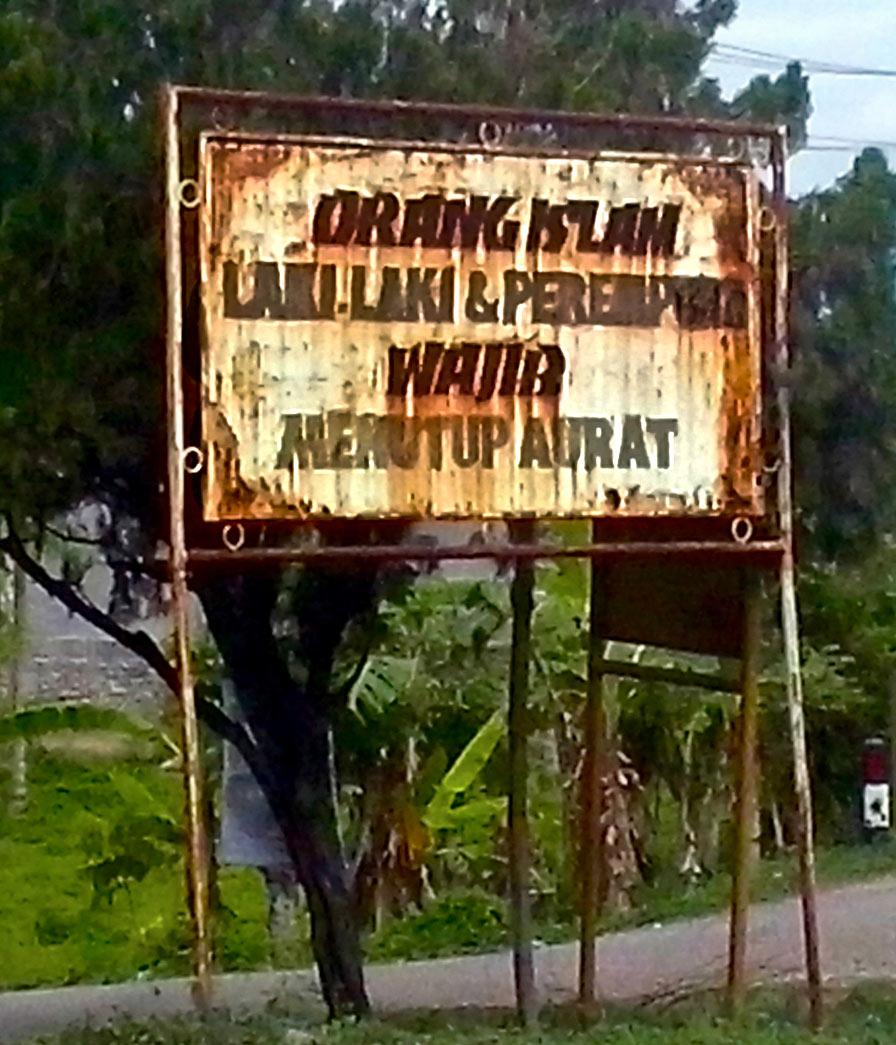
What to Do with Enduring Public Feelings
The terms ’panic’ in ’moral panic’ and ’phobia’ in ’political homophobia’, although commonly alluded to metaphorically, imply the emotions involved in the configuration of normative orders. Janice Irvine (2009) illuminates this in her analysis of moral panics around sex education in the United States, which include emotional scripts of aversion such as fear, anger, hatred and disgust in public discourse to highlight the forms of normative morality that are viewed as mattering most. Indeed, a normative order as a form of discourse, “has the power to bring into being publics produced through what might be instead be called organized feeling“ (Irvine 2009, 247).
Irvine’s account provides insights into how conservative government and religious figures perform affective discourses in claiming their own moral authority, while condemning same-sex desires and activities. This occurred in Aceh prior to the passing of the Qanun Jinayat in late 2014, when Banda Aceh’s Deputy Mayor Illiza S. Djamal called homosexuality “a social disease that should be eradicated” as she pushed for harsher bylaws against sexual behavior that runs counter to the region’s adherence to Islamic Shariah Law (Jakarta Globe, 07/05/2013). Another instance was when Vice Chairman of the Ulama Representative Council in Aceh, Tgk Faisal Ali, was reported as being “surprised” that the homosexual “plague” had reached Aceh and called on the local government to proactively alleviate this “social problem” while also emphasising the role of family members in changing the behavior of sexually “deviant” children, since, he maintained, it is more difficult for those outside the family to offer moral guidance. (Merdeka.com, 16/03/2014)
The various emotional rhetorics backed by religious orthodoxy range from calls for harsher punishment that emphasise the role of the family in “curing” sexual “deviants” to statements that the perpetrators of these “vile acts” deserve to die, such as proposed by the MUI. I see these forms of normative violence (Butler 2004) as having enduring impacts on the psyches of Indonesian Muslim queers, who are made increasingly vulnerable by these harmful religious-legal gestures.
While the ostensibly secular national government has shown a lukewarm response towards the anti-homosexual content in recent Islamic legal discourse with a wait and see policy, both nominally religious and devout Muslims queers remain in an awkward state of prolonged suspension. Human rights advocates and local LGBTIQ activists have repeatedly warned of the possibility for these hostile Islamic legal pronouncements to expand their impact more broadly. In the context of the bylaw in Aceh, activists fear that other conservative provinces will follow suit if the national government does not step in and overturn the law. (Advocate.com, 05/10/2014) Commentators have also warned that statements produced by such an established organisation as the MUI can potentially encourage radical forces to take matters into their own hands, with severely detrimental impacts on sexual minorities (Jakarta Globe, 15/03/2015).
I have elsewhere explored how a series of recent violent incidents targeting sexual minorities has formed a new climate of fear (Thajib 2014) in which, to borrow from Tom Boellstorff (2014: 155), “a sense of potential threat that has a real and lasting cultural efficacy” has developed. Strategies of going underground or “returning to the closet” (Menyawi 2006) have reportedly been opted for by queer activist groups in Aceh (Jakarta Globe, 28/12/2014) in their attempts to create a safe space from persecution. A compelling impact of fear is that in many situations it may paradoxically contribute to strengthening the bonds of existing alliances. For many of the Muslim queers I interviewed in my fieldwork research the term komunitas (“community”) has taken on increasing relevance in their imagination of queer collective belonging. In Yogyakarta a group of interfaith queer youth has been secretly organising a shared platform to reflect together on strategic ways to inhabit the cleavages between homophobic religion and same-sex desire, while also coping with the challenges of social marginalisation and increasing violence. These forms of micro-political consolidation among those targeted by homophobic normative violence demonstrate the possible conditions for engaging and transforming oppressive normative orders.
Ferdiansyah Thajib
Institute of Social and Cultural Anthropology, Freie Universitäat Berlin
Issue 18, Kyoto Review of Southeast Asia, September 2015
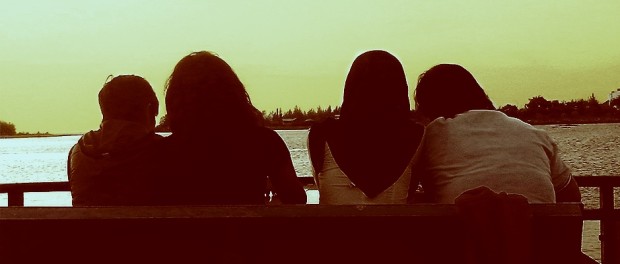
References:
Asad, Talal. ’The Idea of an Anthropology of Islam,’ Occasional Papers Series, Washington, DC: Center for Contemporary Arab Studies, Georgetown University.
Blackwood, Evelyn. 2007.’Regulation of Sexuality in Indonesian Discourse: Normative Gender, Criminal Law and Shifting Strategies of Control.’ Culture, Health & Sexuality,Vol. 9, No. 3. 293-307.
Boellstorff, Tom. 2014 ‘Lessons from the Notion of “Moral Terrorism”.’ Feelings at the Margins: Dealing with Violence, Stigma and Isolation in Indonesia. Birgitt Röttger-Rössler and Thomas Stodulka (Eds.), Campus-Verlag.148-158.
Boellstorff, Tom. 2004. ’The Emergence of Political Homophobia in Indonesia: Masculinity and National Belonging.’ Ethnos, 69(4), 465–486.
Butler, Judith. 2004. Undoing Gender, London: Routledge, 2004.
Dhawan, Nikita. 2013, ’The Empire Prays Back: Religion, Secularity and Queer Critique,’ Boundary 2 40(1): 191-222.
Irvine, Janice M. 2009. ‘Transient Feelings: Sex Panics and the Politics of Emotions’ Moral Panics, Sex Panics: Fear and the Fight over Sexual Right. Gilbert Herdt (Ed.) New York University Press. 234-276.
Massad, Joseph. 2002. ’Re-orienting Desire: The Gay International and the Arab World.’ Public Culture, 14(2), 361–385.
Menyawi H. 2006, ’Activism from the Closet: gay rights strategising in Egypt,’ Melbourne Journal of International Law 7, 1: 28-51.
Schielke, Samuli.2010. ’Second thoughts about the anthropology of Islam, or how to make sense of grand schemes in everyday life.’ Working Papers no.2. Zentrum Moderner Orient.
Thajib, Ferdiansyah. 2014. ‘Navigating Inner Conflict: Online Circulation of Indonesian Muslim Queer’ Feelings at the Margins: Dealing with Violence, Stigma and Isolation in Indonesia. Birgitt Röttger-Rössler and Thomas Stodulka (Eds.), Campus-Verlag.159-179.
Notes:
- Italicised queer in this article is used as an analytical lens and local social category that includes nonnormative subjectivities which do not define (and do not have the privilege to define) themselves based on sexual desires and practices. ↩

